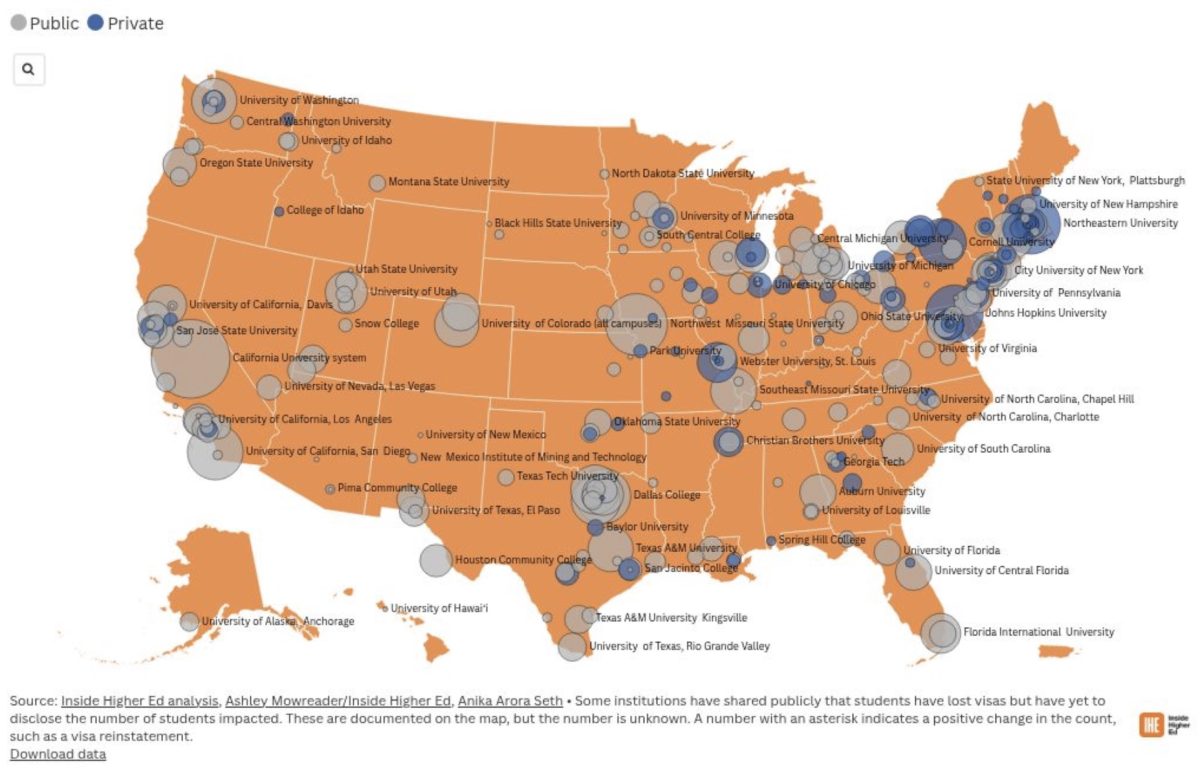The United States is a country that has been known to attract the best and brightest students to its various prestigious universities. However, increasing student visa restrictions is sending the message that international students are no longer welcome here, which can hurt the United States in the long run.
According to uscis.gov, international students typically apply for an F-1 visa, which allows full-time students to attend an academic institution, or an M-1 visa, which allows students to pursue vocational or other non-academic training. Some of the requirements for getting these visas include proof of funds to support oneself during the time of study and government approval of the school being attended. Students also cannot hold off-campus jobs until after their first year, and they are only allowed to pursue jobs related to their field of study and approved by the school.
All of these restrictions have made U.S. education less accessible to foreigners, even before President Donald Trump took office. According to a report conducted by higheredimmigrationportal.org, from 2015 to 2022 visa denials have increased rapidly. This has been most evident with African and Asian students, where denial rates rose from 44 to 54 percent and 30 to 36 percent, respectively.
On top of the existing restrictions, Trump’s new policies are only making matters worse for foreign students. In addition to cutting funding for grants and programs that international students need, in January, Trump issued executive orders to enhance the screening and vetting process and to monitor the activities of “alien students and staff,” according to higheredimmigrationportal.org.
Also, according to reuters.com, starting in March, 1.1 million students had their visas revoked when they were wiped from the Student and Exchange Visitor Information System, putting them at risk for deportation.
In an interview with NPR, Immigration Lawyer Brad Banias confirmed that Immigration and Customs Enforcement had been specifically seeking to take advantage of students’ minor offenses in order to deport them in an operation called the Student Criminal Alien Initiative.
The statuses of the students were only returned by Trump’s administration after many sued, but not before many students were targeted by ICE and had to leave the country.
Unfortunately, the culmination of this anti-foreigner legislation is the fact that we are losing potential successful students. According to an analysis of SEVIS data by Boston College Professor Chris R. Glass, the number of international students fell by 11.33 percent from March 2024 to 2025.
Moreover, the data from this period shows how the 27.9 percent drop in attendance and 20.52 percent drop in master’s degree enrollment for Indian students will result in a potential combined loss of $3 billion for college departments and institutions. Inevitably, if good students are not welcome in the United States, they will seek other opportunities to gain an education, make change and foster economic growth.
Between the fall off of international students, increased deportation and heightened tariffs, it feels like the United States is more isolationist than it has been since World War I. If we are to remain a meritocratic society, then the students who worked for their right to be here should not be forced out.

